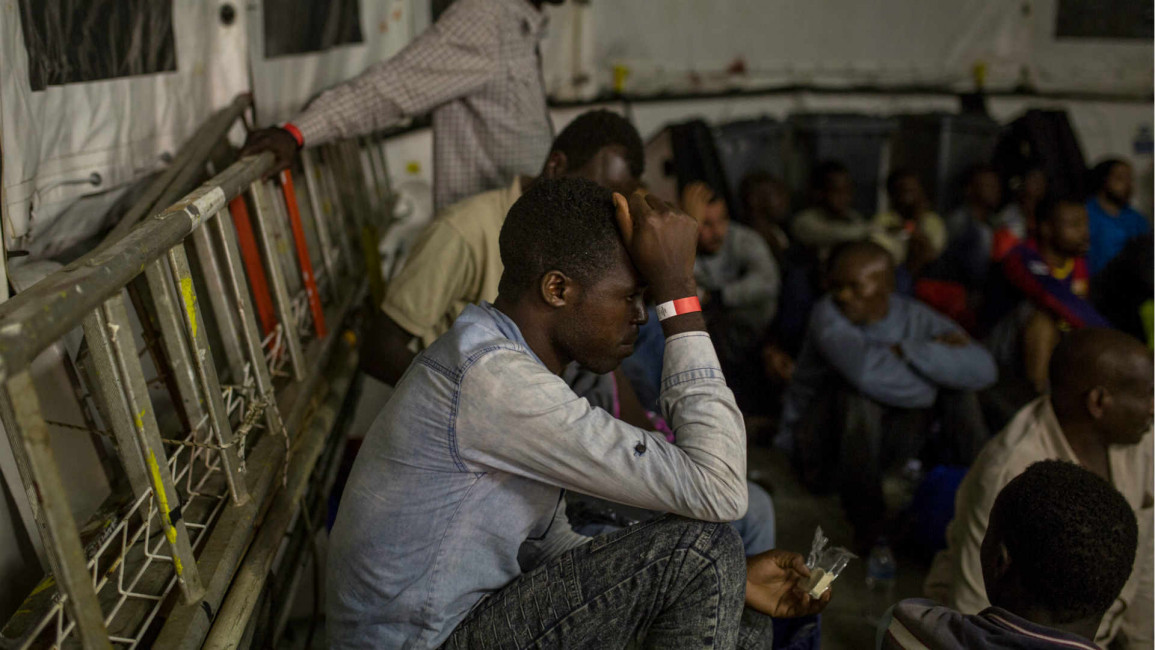Libyan coast guards raid cargo ship, detain migrants
Libya forced a migrant ship carrying at least 79 passengers to disembark in a port west of Tripoli on Tuesday, after they had refused to leave a cargo ship.
Fourteen then disembarked immediately but the vast majority refused.
“A joint force raided the cargo ship and used rubber bullets and tear gas to force (them off the ship),” Tawfiq Esskair, a coastguard commander, told Reuters.
Some were injured during the raid and are "in good condition" after receiving medical treatment, with all now in a detention centre.
The UN has said in response to the raid that "the humanitarian community is saddened by the turn of events".
HRW meanwhile had called for an investigation to study whether Libyan authorities used "unlawful force".
Twitter Post
|
“This is the worst possible conclusion to the desperate plea of the people on board the Nivin to avoid inhuman detention in Libya,” said Judith Sunderland, of Human Rights Watch.
The raid came after diplomats from Sudan and Somalia, who some of the migrants hail from, tried to negotiate with them to leave the ship. But reports say passengers insisted they would rather die then disembark.
Libya has become a main trafficking point for migrants from Africa hoping to reach Europe.
Human rights groups have described terrible conditions for migrants in Libya, with cases of slavery reported in the country.
But heavy pressure from Libya's former colonial power Italy -- which has received most departing from the North African country -- has disrupted smuggling networks.
The increasingly xenophobic stance against migrant arrivals in Italy and elsewhere in Europe come on the heels of more than one million arrivals over the past several years.
Follow us on Twitter: @The_NewArab



